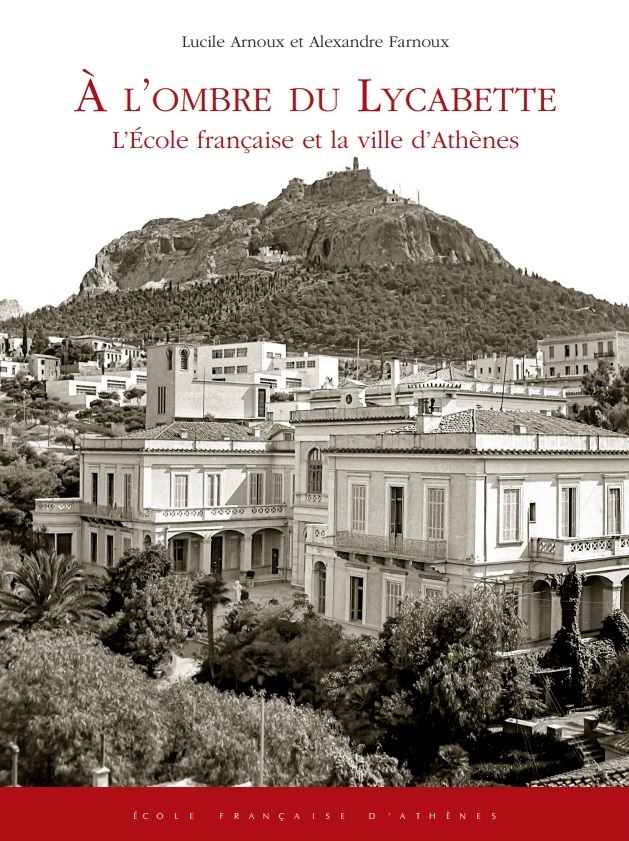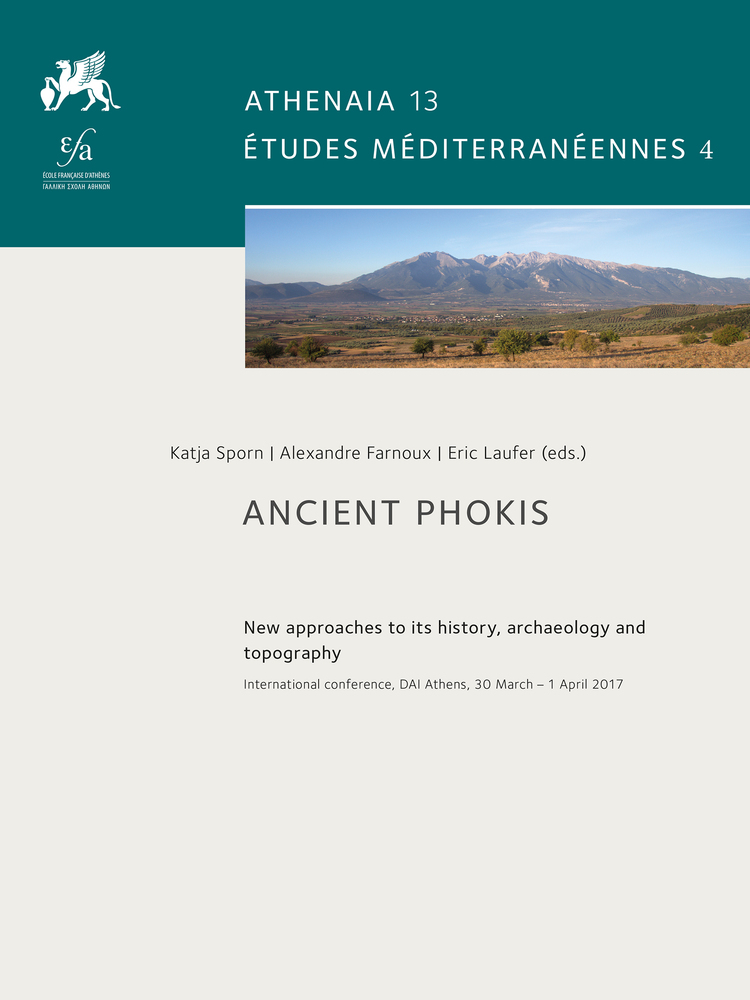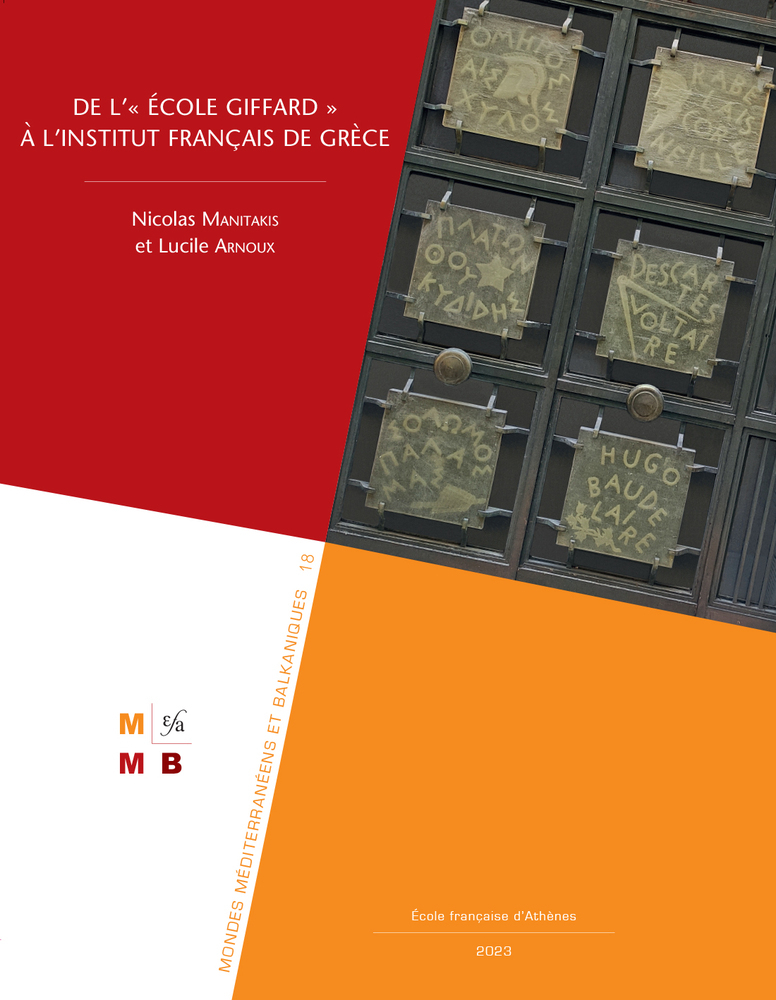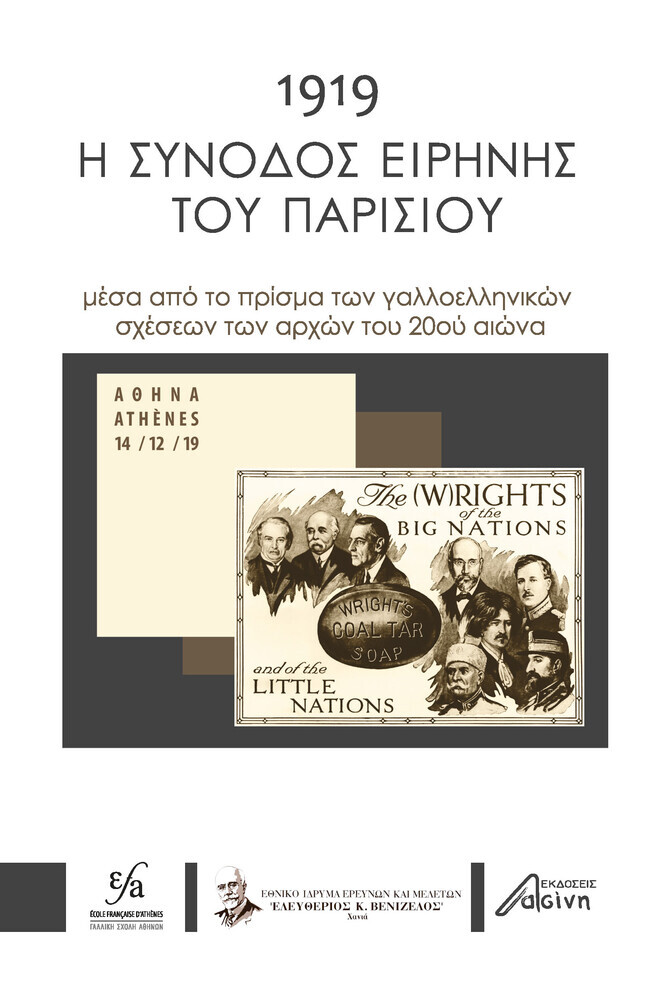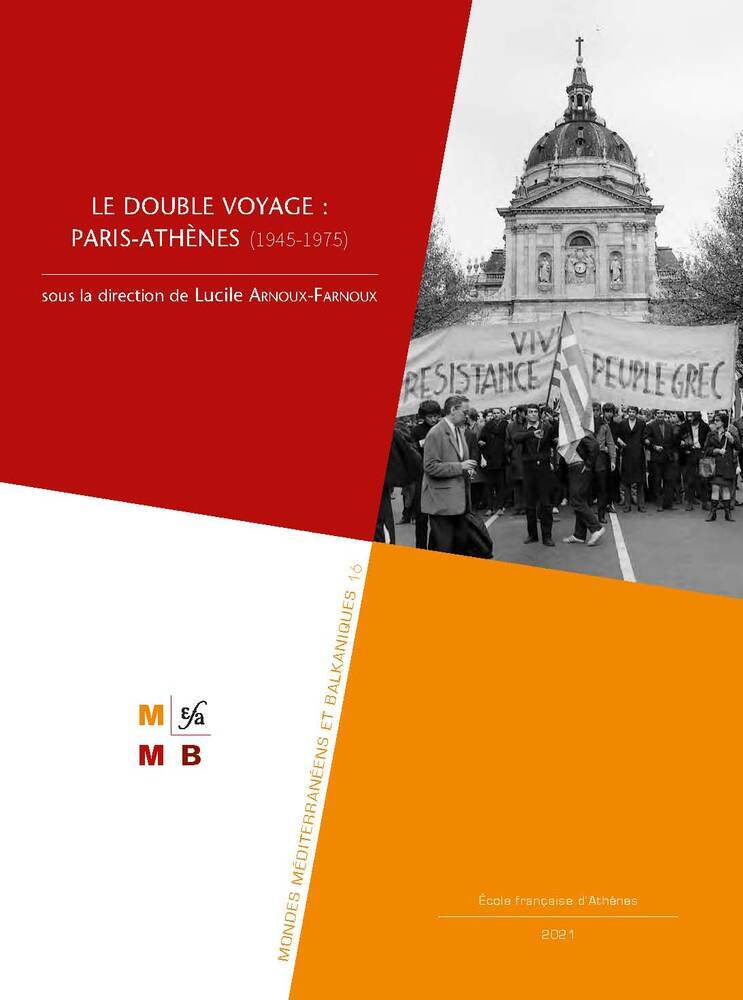Issu d’une conversation de salon athénien, d’une visite officielle à l’Acropole, d’une suggestion d’un ancien membre de l’expédition de Morée ou du malaise d’un érudit français dans une école de la ville ou des quatre à la fois, le destin de l’École française d’Athènes est lié à l’histoire de la ville d’Athènes et de la société athénienne. Ce lien est riche et réciproque, car l’École a été un acteur de l’histoire urbaine et sociale de la ville et la ville a été un terrain d’apprentissage et un objet d’étude pour la communauté savante qui y vit. Dans ce double rapport à la ville qui l’a accueillie, l’École a construit une histoire singulière et méconnue. En s’installant dans la capitale du nouvel État, l’École ne s’installe pas seulement dans « la patrie des arts et des lettres » dont rêve tout philologue: elle prend racine sur un terrain où les membres découvrent une langue grecque vivante et parlée, une Antiquité originale et inattendue, un peuple héritier d’une histoire prestigieuse et acteur d’une actualité imprévisible. C’est pourquoi il n’est pas exagéré de dire que la ville d’Athènes a été pour de nombreux membres la première « école » de la Grèce.
Lucile Arnoux est comparatiste, spécialiste de littérature néo-hellénique (université de Tours). Elle a publié notamment les volumes Le double voyage : Paris-Athènes 1919-1939 (EFA, 2018) et Le double voyage : Paris-Athènes 1945-1975 (EFA, 2021), et traduit plusieurs romanciers grecs des XXe et XXIe siècles.
Alexandre Farnoux est professeur d’archéologie et d’histoire de l’art grec à Paris Sorbonne et ancien directeur de l’École française d’Athènes (2011-2019). Il a travaillé sur plusieurs sites de l’École (Malia, Délos, Lato et Dréros) et a publié plusieurs livres dont Cnossos, l’archéologie d’un rêve (Gallimard, Paris 1993) ou catalogues d’exposition, notamment Homère (Louvre Lens – RMN, 2019).
Ce livre est le premier volume d'une nouvelle collection Sources et documents. En présentant l'édition diplomatique et/ou critique de documents, des journaux de voyage et des carnets de fouilles, des archives photographiques, des dessins, des notes et des lettres, la collection Sources et documents témoigne des recherches et explorations conduites en Grèce, dans les Balkans et dans tout le pourtour oriental de la Méditerranée.
Whether it was the result of a conversation in an Athenian salon, an official tour of the Acropolis, a suggestion from a former member of the Morea Expedition or the discomfort of a French scholar in a local school, or even all four at once, the fate of the French School at Athens is intricately embedded in the historiy of the city of Athens and the Athenian society as a whole. The connection is rich and mutually beneficial as the French School has played a role in the city’s urban and social history, and the city has been a learning field and a research topic for the academic community that has established itself there. Through this two-way relationship, the School has built a unique, but not very well-known, history with its host city. Through its establishment in the capital city of the new State, the French School did not just settle in the “homeland of art and literature” that every philologist dreams of. It laid down roots in a land where the members discovered a vivid, spoken Greek language, an original and unexpected Antiquity and people who were both heirs to a prestigious past and actors in an unpredictable present. It is therefore not an exaggeration to say that many members of the French School were, in the city of Athens, “at the school of Greece".
Lucile Arnoux is a comparatist, who specialises in Neo-Hellenic literature (Université de Tours). She curated Le double voyage : Paris-Athènes 1919-1939 (EFA, 2018) and Le double voyage : Paris-Athènes 1945-1975 (EFA, 2021), and translated the work of a several Greek novelists from the 20th and 21st centuries.
Alexandre Farnoux teaches Archaeology and the History of Greek Art at Paris Sorbonne and is a former director of the French School at Athens (2011-2019). He worked on a number of the School’s archaeological sites (Malia, Delos, Lato and Dreros) and is the author of several books including Cnossos, l’archéologie d’un rêve (Gallimard, Paris 1993) as well as exhibition catalogues such as Homère (Louvre Lens – RMN, 2019).
This book is the first volume of a new series Sources et documents. This collection presents the diplomatic and/or critical publication of documents, travel diaries, field notebooks from excavations, photographic archives, drawings, notes and letters that reflect the research carried out in Greece, the Balkans and all of the Eastern Mediterranean region.
